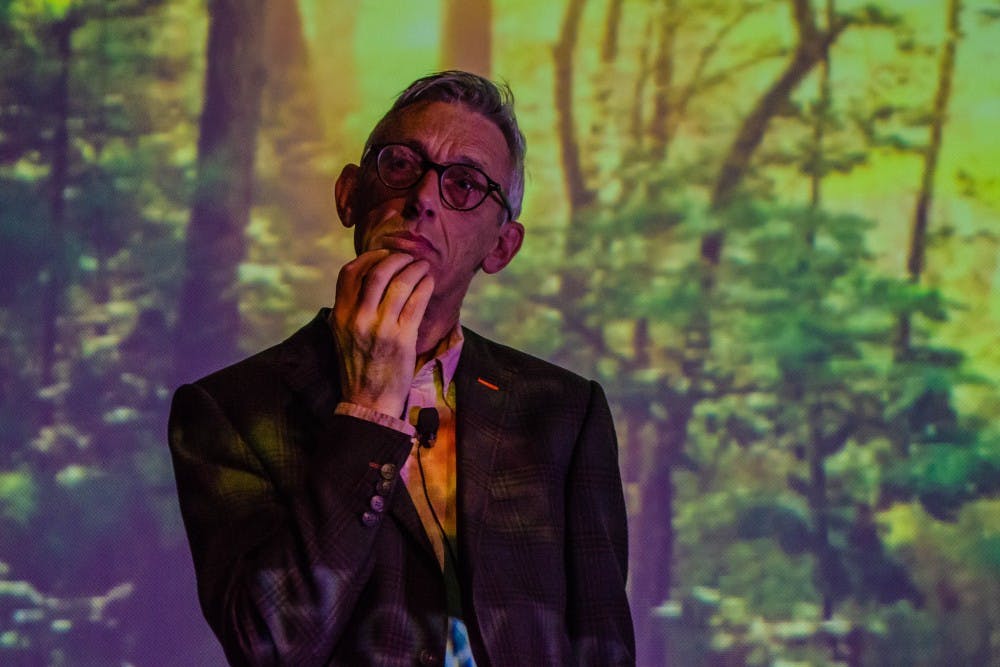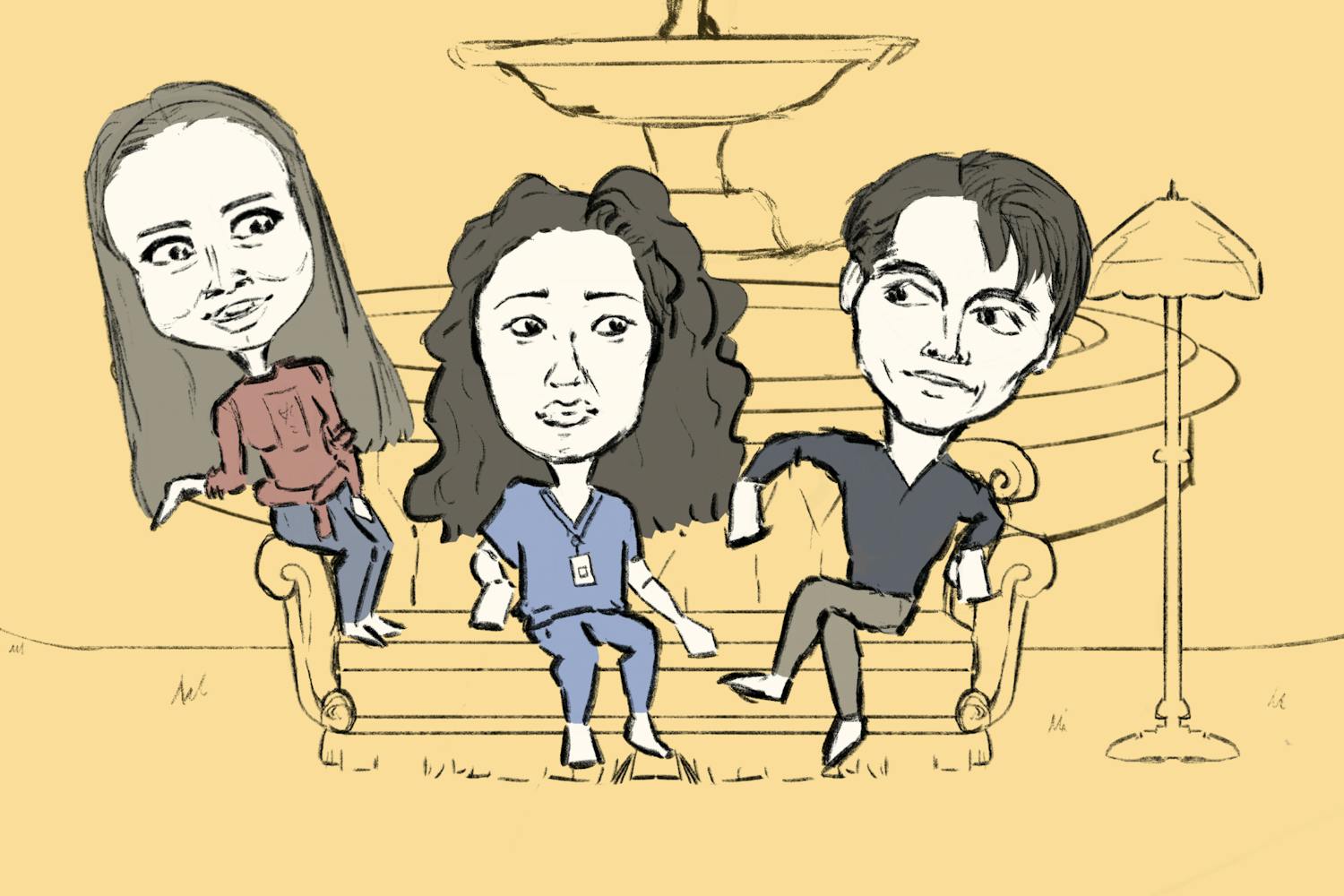Sir Jonathan Bate tipped his cap to England’s grey skies in early January as he left for a brief stint in the Tempe sun.
Since January, the accomplished author and lecturer has been with the Julie Ann Wrigley Global Institute of Sustainability as a distinguished sustainability scholar, where he is working with the Environmental Humanities Initiative.
For the initiative, which aims to engage all of the humanities by exploring the relationships between people and the planet, Bate is currently teaching a class with Mark Lussier, a professor of English at ASU, and delivering a series of lectures.
The lectures emphasize the importance of narrative in communicating his central message: The humanities can save the planet.
“We tend to think about the problem as a set of technical problems described by science and addressed by policy makers, but connecting with them is sometimes difficult for ordinary people," he said. "By telling stories about what makes us human, how we relate to our environment and what the future is going to look like, we can create that emotional engagement.”
Bate, who is also a professor of English literature at the University of Oxford, said ASU and the Environmental Humanities Initiative is the best place to further his research.
ASU not only hosts the first school of sustainability in U.S., but also houses the headquarters of the North American Observatory for the international organization Humanities for the Environment. These resources do not yet exist in Britain, he said.
“I don’t know of any other university in the world that has put the idea of sustainability so centrally as its mission,” Bate said. “In Britain, of course universities are now paying lip service to sustainability, but the notion that you can take a major in sustainability — it just doesn’t exist.”
Lussier shares Bate’s view on narrative. He said that whether it is through literature, film or art, stories are central to binding people together cross-culturally and helping them empathize with environmental issues that might otherwise feel removed from them.
“I think it’s the humanities that ends up being the thing that can bind you closest together as a world,” Lussier said. “It doesn’t matter your culture — narrative rules. It doesn’t matter your ethnicity — narrative rules.”
Humanities play an important role in tackling the environmental crisis, because there are certain questions science cannot answer, said Joni Adamson, who is the director of the initiative.
“It makes sense that humanists would be the experts in saying, why aren't humans making new choices?" Adamson said. "What are their motivations? Why are they making these choices or those choices? So scientists are now agreeing with others around the world that humanists need to be part of those conversations.”
Bate has been influential in bringing together the essential pieces that make the field what it is today, she said.
“He started connecting the dots of what we now call the environmental humanities long before other literary critics did," she said. "His book, 'The Song of the Earth,' is one of the very first books that we mark as a milestone in the environmental humanities.”
At ASU, Bates said these ideas benefit from the interdisciplinary vision of ASU and the Environmental Humanities Initiative, which he said actively engage the entire spectrum of the humanities and put them into dialogue with the sciences.
“The point about sustainability is it’s a concept that is completely trans-disciplinary," he said. "It sits above, across and combined together with disciplines across all the sciences, social sciences and humanities. To me, that’s the very visionary thing about ASU.”
The next lecture, titled The End of the World as We Know It, is on Feb. 5, at Changing Hands bookstore.
Reach the reporter at wpmcclel@asu.edu and follow @wpmcclelland on Twitter.
Like The State Press on Facebook and follow @statepress on Twitter.




